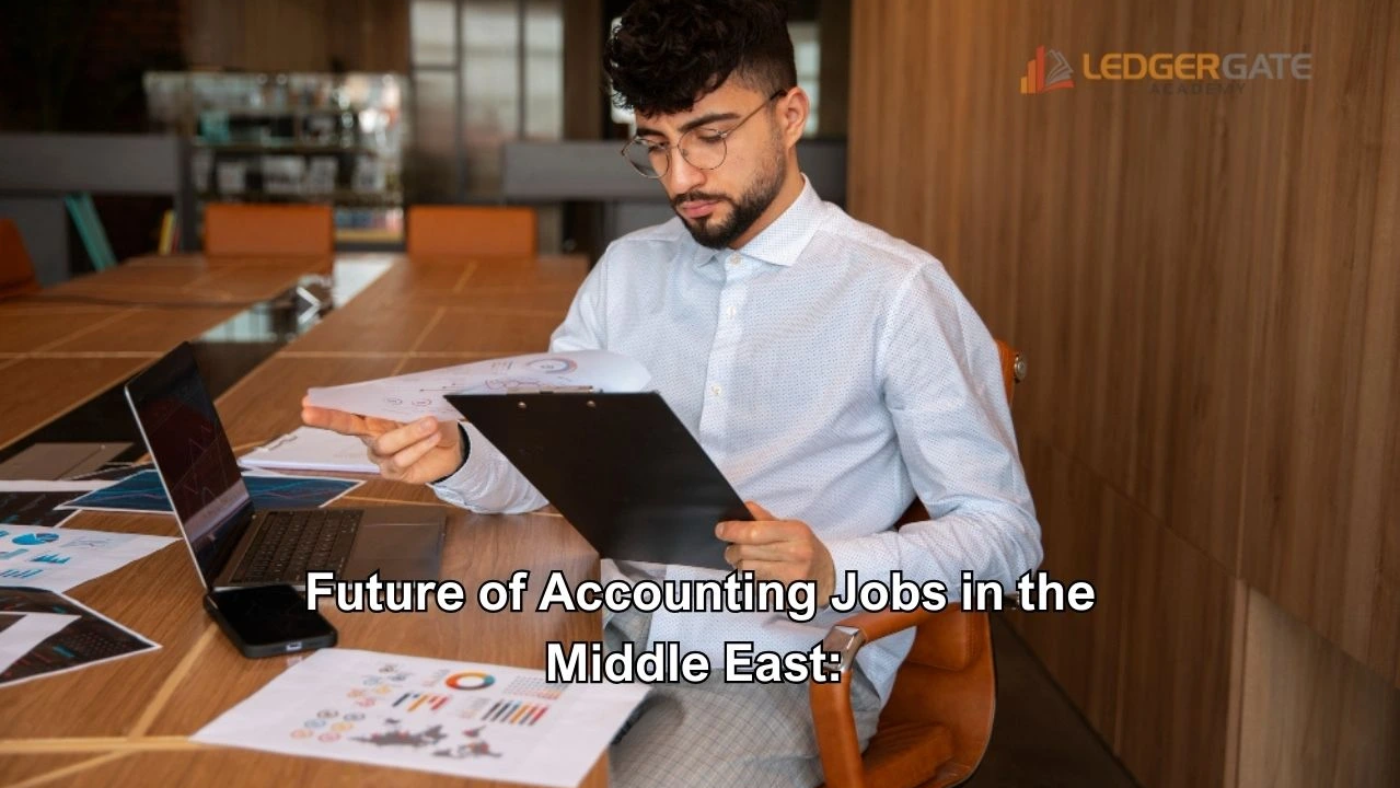The accounting profession is rapidly evolving, and the future of accounting jobs in the Middle East looks promising yet challenging. As businesses grow and digital transformation takes center stage, the role of accountants is becoming more strategic and technology-driven. In this blog, we’ll explore how the accounting landscape is changing in the Middle East and what professionals must do to stay ahead.
1. Increasing Demand for Financial Experts
The Middle East, particularly the Gulf Cooperation Council (GCC) countries, is experiencing economic diversification beyond oil and gas. Industries like real estate, tourism, construction, retail, and finance are growing, leading to an increasing demand for skilled financial professionals. Accountants are no longer just number crunchers but are now strategic advisors helping businesses make informed financial decisions. As more international companies set up operations in cities like Dubai, Riyadh, and Doha, accountants with global certifications like CMA USA or CPA will have a distinct advantage. LedgerGate Academy’s CMA USA course in Qatar is the best option for your accounting career.
2. Digital Transformation and Automation
Technology is reshaping the future of accounting jobs, and the Middle East is no exception. With the advent of cloud accounting software, AI-driven financial analysis, and blockchain technology, traditional bookkeeping tasks are becoming automated. Accountants need to embrace digital tools to stay relevant. The role of accountants is changing from data entry and manual reconciliation to data analysis and financial forecasting.
Professionals who can leverage tools like ERP (Enterprise Resource Planning) systems, robotic process automation (RPA), and advanced financial analytics will be in high demand. Accountants who develop skills in data interpretation, automation, and financial technology will be better positioned for future job opportunities.
3. Rise of Forensic Accounting
As Middle Eastern economies continue to grow, there’s a parallel rise in financial fraud, money laundering, and corporate governance issues. This has led to an increasing demand for forensic accountants who can investigate and prevent financial crimes. Governments across the region are also tightening regulations around financial reporting, making forensic accounting an essential field for future growth.
Forensic accounting is becoming one of the most sought-after specialties within the accounting profession. Professionals who specialize in fraud detection, legal compliance, and forensic audits will find abundant opportunities in the Middle East, especially in industries like banking and insurance.
4. Adapting to Changing Tax Regulations
With the introduction of VAT in several GCC countries, accountants are needed to help businesses navigate complex tax regulations. In addition to VAT, countries are exploring corporate taxation and transfer pricing regulations, which will further boost the demand for tax specialists. Accountants who specialize in tax advisory and compliance will play a crucial role in helping businesses remain compliant with local laws while optimizing their tax liabilities.
The future of accounting jobs will see a higher demand for professionals who understand regional tax regulations and international taxation rules. As taxation becomes a key focus for businesses, accountants must stay updated with ever-changing regulations.
5. Global Certifications Are Essential
To succeed in the future accounting job market, professionals in the Middle East will need to have globally recognized certifications like CMA (Certified Management Accountant), CPA (Certified Public Accountant), or ACCA (Association of Chartered Certified Accountants). These certifications ensure that accountants have a deep understanding of international accounting standards, business strategy, and financial planning. Moreover, these credentials give professionals the flexibility to work across borders, as companies in the Middle East increasingly seek global expertise.
If you are ready to crack the CMA USA course online in Dubai, Ledgergate is the way to success.
6. Soft Skills Are the Future
While technical skills are essential, the future of accounting jobs will also require strong soft skills. Accountants need to communicate complex financial information to stakeholders, including non-financial executives, clearly and effectively. Leadership, critical thinking, and problem-solving will be key skills for accountants to grow in their careers.
Furthermore, as accounting teams become more diverse, cultural awareness and the ability to collaborate across borders will be essential. Middle Eastern firms often work with multinational clients and stakeholders, so accountants must be adept at working in a global business environment.
7. Focus on Sustainability and ESG Reporting
Sustainability is a growing concern for businesses worldwide, and the Middle East is catching up. Companies are increasingly being held accountable for their environmental, social, and governance (ESG) practices. Accountants will play a critical role in ESG reporting, ensuring that companies meet sustainability goals and regulatory requirements.
In the future, accountants will need to develop expertise in ESG metrics, sustainability reporting frameworks, and how these factors impact financial performance. As investors and stakeholders demand more transparency, accountants with a background in ESG reporting will be highly sought after.
The future of accounting jobs in the Middle East is bright, driven by the region’s economic growth and the increasing adoption of technology. To thrive in this changing landscape, accountants must embrace digital tools, obtain global certifications, and hone their soft skills. Specializations like forensic accounting, tax advisory, and ESG reporting will offer new avenues for career growth. As the demand for skilled professionals rises, those who adapt to these trends will secure high-paying and rewarding positions in the Middle East’s dynamic job market.


Add a Comment